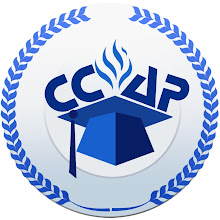Sandra Stotsky has an absolutely fascinating analysis of the revisions proposed by NCATE:
the National Council for Accreditation of Teacher Education (NCATE), the organization that accredits most of the nation’s education schools, announced a revision of its accrediting guidelines. It’s the first major revision in ten years.
... After the Foundation for Individual Rights in Education called attention to what amounted to an ideological litmus test for entry into teaching, NCATE dropped that standard.
Even worse was the blistering (and also unexpected) criticism of NCATE in Arthur Levine’s 2006 report on teacher preparation programs...
...Levine’s research team found no significant difference in mathematics or reading achievement in students taught by teachers educated at NCATE- and non-NCATE-accredited institutions. That was a staggering blow to the organization’s prestige.
The group’s new president, James Cibulka, hopes the new guidelines will repair the damage and persuade people that NCATE accreditation can lead to improving teacher education....
The problem with NCATE’s white paper is what it doesn’t say.
...As the National Mathematics Advisory Panel found, the common characteristic of effective teachers is a deep knowledge of the subject they teach. But nothing in NCATE’s new guidelines ensures that prospective teachers, especially for elementary and middle school, will have the academic background necessary to teach the subjects they will be expected to.
An even more serious problem we face is raising the academic caliber of those who want to become teachers... but NCATE’s revised guidelines don’t address this issue...
Even though the new guidelines aim at increased knowledge about “what works to improve student learning,” there’s nothing in the new NCATE standards about using what is already known about what works. That’s especially true in beginning reading instruction. The research evidence is clear that techniques such as phonics and direct instruction are effective, but they don't tend to be taught in education schools...
If accreditation is to improve the quality of our teacher preparation programs, the most important step must be a dramatic expansion of the organizations that supply the individuals who review education school programs and the incorporation of their standards into the process. The problem is that NCATE is composed only of educational, not discipline-based, organizations...
The absence of subject matter experts on review teams keeps constructivist, anti-content theories about teaching dominant in our education schools...

No comments:
Post a Comment